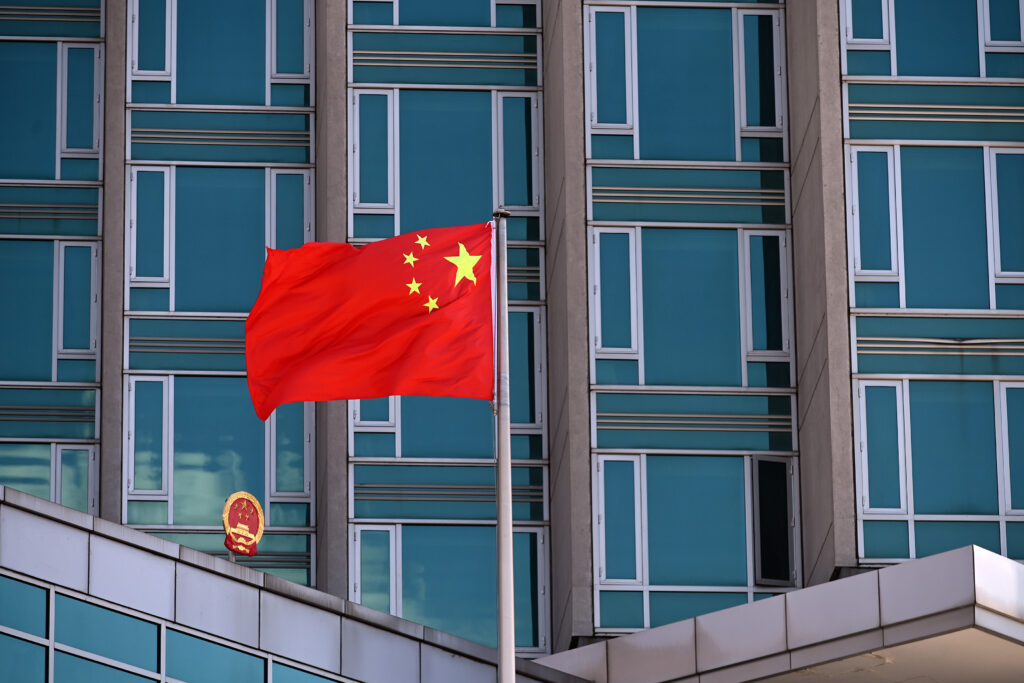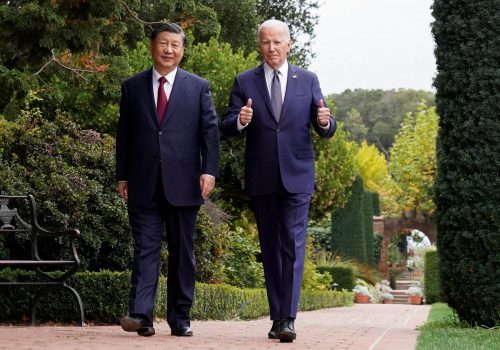The United States and its allies and partners are under constant threat from pervasive efforts by China to collect intelligence, though this rarely makes it into the public eye. This week provided a clear reminder of this threat. On January 8, US Navy sailor Wenheng Zhao, who pled guilty in October 2023 in the Central District of California to one count of conspiring with a foreign intelligence officer and one count of receiving a bribe, was sentenced to twenty-seven months in prison and ordered to pay a $5,500 fine.
Zhao was one of two active duty US servicemembers indicted in August 2023 for providing sensitive US military information to China. The second, Jinchao Wei, was indicted for violating an espionage statute and multiple export violations in the Southern District of California. According to the indictment, he was granted US citizenship while the alleged illegal activities were taking place. (Wei is, of course, presumed innocent until proven guilty in a court of law.)
These two cases are playing out as tensions remain high between the United States and China, even after the November 2023 meeting between US President Joe Biden and Chinese leader Xi Jinping. In response to these court cases, there will be an understandable temptation for the United States to react by doing something to address Chinese espionage, and perhaps even pressure for systemic changes to the US counterintelligence approach. But big, sudden changes often create new and potentially greater vulnerabilities. Instead, policymakers should respond carefully and deliberately by seizing this moment to manage counterintelligence and security risks more effectively over the long term.
This can be done by decreasing the probability of future similar events from occurring, while avoiding creating new risks. Specifically, the response should consider focusing on prevention via training, enhanced information-sharing with allies and partners, and a shift to a more holistic risk-based personnel security approach for all US military members.
Intelligence collection doesn’t always mean stealing classified secrets
These two cases suggest that China’s intelligence services recognize that national security information does not have to be classified to provide them with value.
Although both Zhao and Wei reportedly had secret-level security clearances, they were not assigned to particularly sensitive military occupational specialties, and there are no indications within the indictments that they passed classified information to Beijing’s intelligence services.
Wei was assigned to the USS Essex amphibious assault ship, which operates as a “Lightning carrier,” a platform for fifth generation F-35B Lightning strike aircraft. He allegedly used his phone to take photos that he provided to China’s intelligence services, while also providing information regarding potential vulnerabilities of the USS Wasp class of US Navy ship.
Zhao reportedly provided Chinese intelligence with information regarding the electrical system for a storage facility at a base in Okinawa housing a Ground/Air Task-Oriented Radar system. This radar system is used for expeditionary warfare that supports Marines in a contested or potentially contested maritime area—the kind of warfare that would matter in a conflict in the Western Pacific.
Given China’s resources, these were low-cost operations relative to the information allegedly received and a high return on investment to enhance Beijing’s hard power. As compensation for their alleged activities, Wei reportedly received between $10,000 and $15,000, while Zhao received the equivalent of almost $15,000.
Three new steps to bolster counterintelligence and security
While these cases shed light on national security risks for the United States and its allies and partners, they also present the opportunity to justify new options for Washington to respond. That response should not, for example, be to limit the opportunities for foreign nationals to serve honorably in the US military or take measures that could damage recruitment and retention. Rather, it should take careful, measured steps to reinforce the foundations of counterintelligence and security. There are three steps policymakers should take next:
1. Focus more on prevention relative to treatment
In the medical community, doctors think of solutions in terms of prevention and treatment. For national security, the United States must do both, but in this instance, prevention—via training—should be the focus.
Specifically, the Department of Defense should enhance its counterintelligence threat awareness and reporting training program. This can be done by increasing the frequency of the training, presenting the information in different ways, and requiring a signed acknowledgement of responsibility from the training recipient. Such prevention measures would require additional resources for the Department of Defense counterintelligence and security system, but it would be worth the cost since the enhanced training requirements would decrease risk and potential costs overall.
2. Mobilize allies and partners to work together on counterintelligence
While protecting the integrity of the criminal justice process, the United States should consider sharing as much information as possible with its allies and partners about the methods that China’s intelligence services use to conduct their operations, particularly US allies and partners in the Indo-Pacific, since they are likely being targeted using similar methods.
Specifically, the US counterintelligence community should host periodic events with its allies and partners to exchange information regarding how Beijing’s intelligence services target military members. This will help educate their military personnel regarding the evolving threat, including the types of cover used to approach potential targets. In the case of Zhao, the Chinese intelligence officer reportedly portrayed himself to Zhao as a maritime economic researcher, who needed information in order to “inform investment decisions.”
3. Establish a more holistic approach to personnel security that better integrates counterintelligence
Finally, the Department of Defense should consider enhancing the current security clearance-based system with a more holistic, risk-based personnel security approach. This would include those US military members who do not require access to classified information.
How might this work? There are various policies and systems already in place for personnel security and information security, especially for individuals who hold top secret security clearances and those who work in sensitive compartmented information facilities (SCIFs). Those important safeguards for security clearance holders should remain, but there are currently disconnects between security considerations (Do the duties of a position require working with sensitive information?) and counterintelligence findings (What information might China or other countries want?). The goal, then, should be to more closely integrate security and counterintelligence. Such an approach would fuse counterintelligence information regarding the evolving capabilities and intentions of foreign intelligence services with information about the duties of the position.
The risks of national security information being provided to foreign intelligence services have always existed and can never be eliminated, so the objective should be to optimally manage those risks. This could best be accomplished by investing in training, increasing sharing with allies and partners, and shifting to a more holistic risk-based personnel security approach for all US military members.
Given the long-term and dynamic challenges of US-China strategic competition, now is the time to adapt US counterintelligence and security policy to effectively meet those challenges posed by China’s intelligence collection efforts.
Andrew Brown is a nonresident fellow with the Atlantic Council’s Indo-Pacific Security Initiative, where he specializes in defense and intelligence issues. He was previously a criminal investigator with the Department of Defense and was assigned to the Office of the Director of National Intelligence (ODNI).
The views expressed in this article are the author’s and do not reflect those of the Department of Defense or ODNI.
Further reading
Wed, Nov 22, 2023
China’s acoustic aggression against a US ally follows a pattern. Military talks won’t help.
New Atlanticist By Markus Garlauskas, Philip W. Yu
On November 14, a Chinese warship used its active sonar to harass and injure two Australian Royal Navy divers with high-powered sound waves.
Mon, Dec 4, 2023
Community watch: China’s vision for the future of the internet
Report By Dakota Cary
In 2015, Beijing released Jointly Building a Community with a Shared Future in Cyberspace, a white paper outlining the CCP’s vision for the future of the internet. In the eight years since then, this vision has picked up steam outside of China, largely as the result of Beijing’s efforts to export these ideas to authoritarian countries.
Wed, Nov 15, 2023
Experts react: What did Biden and Xi’s ‘candid’ meeting accomplish?
New Atlanticist By
Atlantic Council experts break down the US and Chinese leaders' four-hour summit and what's coming next.
Image: A view of Chinese flag flying at the Consulate General of the Peoples Republic of China on Manhattans West Side, in New York, NY, July 27, 2020. Diplomatic relations between the United States and China have reached a low point as the U.S. ordered the shutdown of the Chinese Consulate in Houston on July 23, accused by the Trump administration of economic espionage and stealing scientific research; in a retaliatory move, the Beijing government ordered the closing of the U.S. consulate in Chendgu. (Anthony Behar/Sipa USA)



